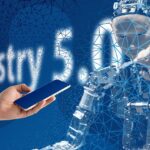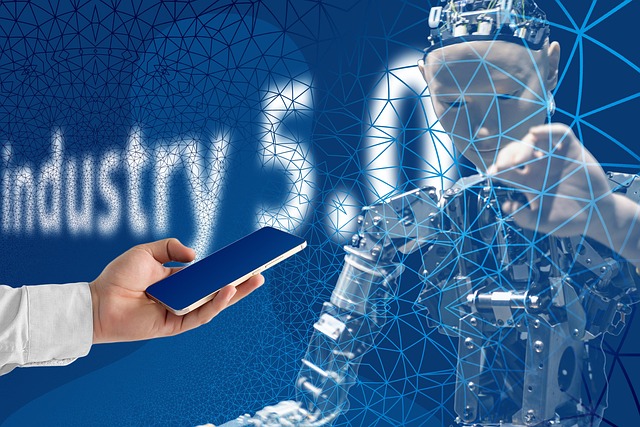# AI Breakthroughs: How Intelligent Technologies Are Reshaping Our Understanding of the World
Artificial Intelligence (AI) has rapidly evolved over the past decade, transforming various sectors and redefining our perception of technology’s role in society. From healthcare to education, AI breakthroughs are not only enhancing efficiency but are also reshaping our understanding of complex systems and phenomena. This article delves into the key areas where intelligent technologies are making significant impacts, highlighting how they are changing our worldview.
## Revolutionizing Healthcare
In recent years, the healthcare sector has witnessed remarkable advancements due to AI technologies. Machine learning algorithms, for instance, are now being utilized to analyze vast datasets, enabling healthcare professionals to make more informed decisions. By examining patterns in patient data, these algorithms can predict disease outbreaks and identify potential health risks before they escalate. Such predictive capabilities are instrumental in preventative healthcare, allowing for early interventions that save lives and reduce costs.
Moreover, AI-driven diagnostic tools are enhancing the accuracy of disease detection. For example, deep learning models have been developed to interpret medical imaging with precision that often surpasses human experts. Radiologists are increasingly relying on AI to assist in identifying abnormalities in X-rays, MRIs, and CT scans, leading to quicker diagnoses and treatment plans. This synergy between human expertise and AI capabilities is not merely a trend; it is a paradigm shift that is redefining how we approach medical care.
Another fascinating development in healthcare is the emergence of personalized medicine, fueled by AI’s ability to analyze genetic information. By understanding an individual’s genetic makeup, healthcare providers can tailor treatments to suit specific genetic profiles, enhancing the efficacy of therapies. This level of customization represents a significant departure from the traditional one-size-fits-all approach, paving the way for more effective and targeted treatments.
## Transforming Education
In the educational landscape, AI technologies are reshaping how knowledge is imparted and acquired. Adaptive learning platforms have emerged as powerful tools that cater to the unique learning styles and paces of individual students. By leveraging AI algorithms, these platforms assess a student’s strengths and weaknesses, delivering customized content that enhances learning outcomes. Such personalized educational experiences empower students to take charge of their learning journey, fostering a deeper understanding of the subject matter.
Furthermore, AI is playing a pivotal role in automating administrative tasks, allowing educators to focus more on teaching. Tasks such as grading assignments and managing schedules can be time-consuming; however, AI-driven systems are streamlining these processes, freeing up valuable time for educators. As a result, teachers can dedicate more attention to student engagement and support, ultimately improving the overall educational experience.
Additionally, AI is facilitating the rise of virtual classrooms and remote learning environments. With the advent of intelligent tutoring systems, students can access quality education regardless of geographical barriers. This democratization of education is crucial, particularly in underserved regions where access to qualified teachers and resources is limited. By harnessing the power of AI, we are not only enhancing educational accessibility but also fostering a global learning community.
## Enhancing Scientific Research
Scientific research is undergoing a significant transformation thanks to AI breakthroughs. The ability to process and analyze large datasets has become increasingly crucial in various fields, from climate science to astrophysics. AI algorithms are capable of identifying patterns and correlations within massive datasets that would be nearly impossible for human researchers to discern. This capability accelerates the pace of discovery and allows scientists to generate insights that could lead to groundbreaking advancements.
One notable application of AI in scientific research is in drug discovery. Traditional methods of developing new pharmaceuticals can be lengthy and costly, often taking years to bring a drug to market. However, AI is streamlining this process by predicting how different compounds will interact with biological targets. Machine learning models can simulate molecular interactions, significantly reducing the time and resources required for experimental trials. This innovation not only expedites the development of new treatments but also has the potential to revolutionize the pharmaceutical industry.
In addition to drug discovery, AI is enhancing our understanding of complex environmental systems. Climate modeling, for instance, has greatly benefited from AI technologies that can analyze vast amounts of climate data to predict future trends. By improving the accuracy of climate models, researchers can better understand the implications of climate change and develop effective mitigation strategies. This newfound understanding is crucial for policymakers and communities worldwide as they navigate the challenges posed by a changing climate.
## Conclusion
The breakthroughs in AI technologies are undeniably reshaping our understanding of the world across multiple domains. From revolutionizing healthcare and transforming education to enhancing scientific research, intelligent systems are providing us with tools that empower us to make informed decisions and foster innovation. As we continue to explore the potential of AI, it is essential to remain mindful of the ethical considerations and societal implications that accompany these advancements. The journey of integrating intelligent technologies into our daily lives is just beginning, and the possibilities are as vast as the data we are now able to analyze and understand. As we embrace these changes, we stand at the forefront of a new era of knowledge and discovery, one where our understanding of the world is continually being enriched by the power of artificial intelligence.











